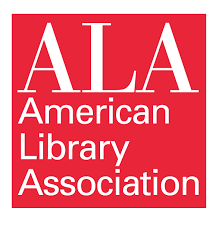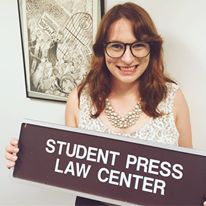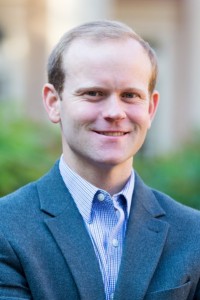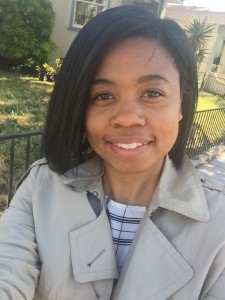 Posted on behalf of Nick Gross, third-year Ph.D. student:
Posted on behalf of Nick Gross, third-year Ph.D. student:
This summer I worked as a Google Policy Fellow at the American Library Association’s Office for Information Technology Policy (OITP) in Washington, D.C. The Google Policy Fellowship gives undergraduate, graduate, and law students the opportunity to spend the summer working for public interest groups engaged in Internet and technology policy issues. As the world’s oldest and largest library association, the ALA represents 58,000 members in academic, public, school, government, and special libraries. OITP helps secure information and technology policies that support libraries’ mission to ensure the public’s access to electronic information resources in order to promote a free and open information society.
As a fellow, my primary role at OITP was to prepare tech policy memos to submit to the incoming presidential administration. The goal is to inform policymakers about ALA’s public policy concerns, including why, and to what extent, ALA has an interest in specific tech issues and what the next policies should look like. To that end, I drafted a briefs on telecommunications issues and copyright issues.
The telecommunications brief addresses the importance of broadband Internet to libraries. A robust broadband infrastructure ensures that libraries can continue to provide their communities with equitable access to information and telecommunications services, and to serve residents with digital services and content via “virtual branches.” With funding from the Federal Communications Commission’s Universal Service Fund (USF), libraries and underserved or unserved communities are better able to afford access to high-capacity broadband. Also, greater broadband competition and local choice increase broadband deployment, affordability, and adoption for libraries and their communities. Opening up more unlicensed spectrum for Wi-Fi expands broadband capacity so libraries can better serve their communities. Libraries sometimes provide the only Internet access for some communities. Finally, because libraries use the Internet to research, educate, and create and disseminate content, as well as provide no-fee public access to the Internet, they highly value the FCC’s 2015 Open Internet Order, which helps guarantee intellectual freedom and free expression, thereby promoting innovation and the creation and exchange of ideas and content.
As copyright lies at the core of library operations, OITP advocates for law that fulfills the constitutional purpose of copyright—namely, a utilitarian system that grants “limited” copyright protection in order to “Promote the Progress of Science and useful Arts.” The copyright brief calls for a balanced copyright system in the digital age that realizes democratic values and serves the public interest. The first sale doctrine enables libraries to lend books and other materials. The fair use doctrine is critical to libraries’ missions, as it enables the “free flow of information,” fostering freedom of inquiry and expression. For instance, the fair use doctrine enables libraries to use so-called “orphan works” without fear of violating the authors’ copyrights. Moreover, libraries are at the forefront of archiving and preservation, using copyright law’s exceptions to make reproductions and replacements of works that have little to no commercial market or that represent culturally valuable content in the public domain. Libraries also enjoy protections against liability under the Section 512 Safe Harbors in the Digital Millennium Copyright Act (DMCA).
Furthermore, the brief highlights specific challenges that threaten libraries’ mission to provide the public with access to knowledge and upset the careful balance between copyright holders and users. For instance, e-licensing and digital rights management (DRM) under section 1201 of the DMCA limits libraries’ ability to take full advantage of copyright exceptions, from fair use to first sale to preservation and archiving. ALA also advocates the ratification and implementation of the World Intellectual Property Organization’s Marrakesh Treaty to Facilitate Access to Published Works for Persons Who Are Blind, Visually Impaired, or Otherwise Print Disabled.
In addition to my policy work, Google’s bi-weekly meetings at its D.C. headquarters shed light on the public policy process. At each event, Google assembled a panel of its own policy-oriented employees and other experts from public interest groups in D.C. Topics ranged from copyright law to broadband deployment and adoption to Net Neutrality. During the meetings, I enjoyed the opportunity to meet the other Google fellows and learn about their work.
My experience as a Google Policy Fellow at OITP taught me a great deal about how public interest groups operate and advocate effectively. For instance, I learned how public interest groups collaborate and form partnerships to effect policy change. Indeed, ALA works, or has worked, with groups like the Center for Democracy & Technology to advocate for Net Neutrality.
Not only did I gain a deeper insight into telecommunications law and copyright law, I also developed an appreciation as to how such laws can profoundly impact the public interest. I’d highly recommend the Google Policy Fellowship to any student interested in learning more about D.C.’s policymaking in the tech ecosystem.
Nick Gross
Third-year Ph.D. Student
School of Media and Journalism
University of North Carolina at Chapel Hill
Save





